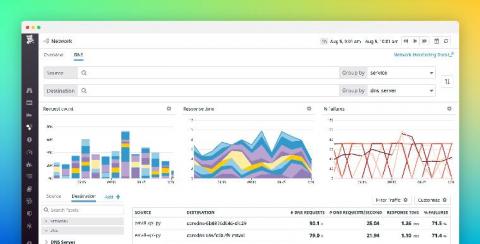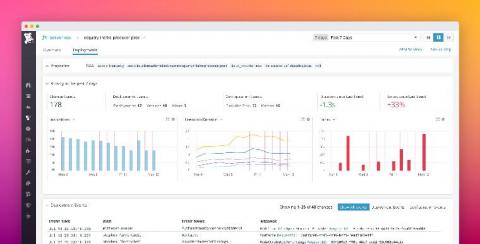Manage CloudFront real-time logs in Datadog
Amazon CloudFront is a content delivery network (CDN) that minimizes latency by caching your content on AWS edge locations around the world. With CloudFront real-time logging, you can understand how efficiently CloudFront is distributing your content and responding to requests. You can collect CloudFront real-time logs in Datadog—in addition to CloudFront metrics—to get deep visibility into the health and performance of your CloudFront distribution.











